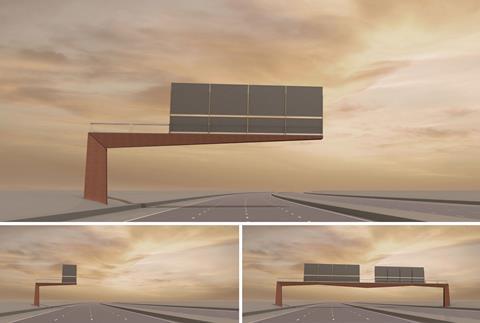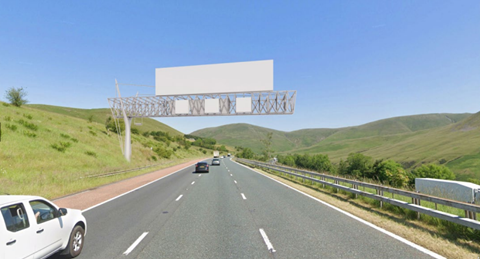RIBA competition attracted more than 30 entries
London-based practice Useful Studio has pipped John McAslan & Partners to win a RIBA competition to design the next generation of England’s motorway gantries for National Highways.
The firm’s proposals for a series of structures built with weathered steel were selected from 32 entries submitted by practices across the UK and Europe.
It was chosen by the judging panel for its “elegance and simplicity, and how cohesive the design concept was across a range of different structures”.

National Highways’ executive director for operations Duncan Smith praised the concept for using less steel than existing gantries, lowering their potential carbon impact, and the opportunities it presented in terms of a “resource efficient, standardised, coherent suite of gantry structures that would be potentially sympathetic to a broad range of settings and contexts”.
Useful Studio will now work with National Highways to develop the design concept, with a view to it becoming the standard design for new roads and major upgrades from around two years’ time.
The government’s road operator currently has around 3,500 gantries, although it said it will not be immediately replacing them.
McAslan, which entered a design consisting of a sculptural primary mast and cable-stayed lightweight modular gantry truss, came in second place.

Commended entries included Knight Architects’ plan for removing gantries altogether in favour of displays inside vehicles, and Kevin Kelly Architects and Stand Engineers’ proposals for gantries constructed from timber.
The competition is part of a National Highways design initiative which sets out 10 principles for good road design including that gantries should demonstrate sensitivity to the landscape, heritage and local community, eliminate unnecessary and confusing clutter and be environmentally sustainable.




























No comments yet